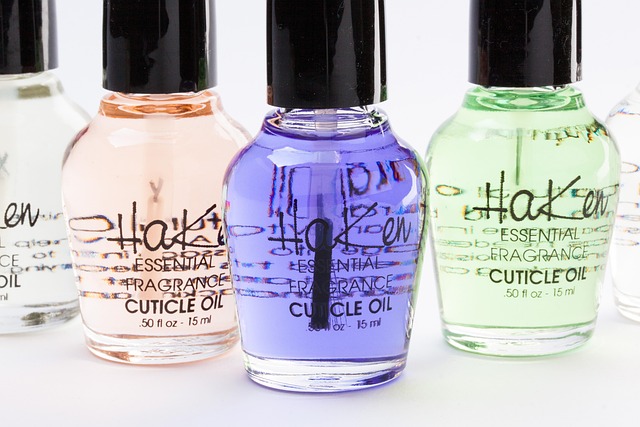Surgical malpractice claims pose significant risks to cosmetic surgeons due to high-risk procedures and patient expectations. Adequate insurance for cosmetic surgeons is crucial, offering tailored policies covering consent issues, diagnosis errors, treatment complications, and post-operative care mishaps. Comprehensive coverage should extend beyond traditional medical scenarios, providing protection against financial losses, legal fees, and settlements, enabling surgeons to focus on quality care. Policies must address unique risks of procedures like breast augmentation or facelifts, with high limits of liability and a reputable insurer. Compliance with legal frameworks and best practices is essential for mitigating malpractice risks and upholding professional ethics. Case studies highlight the importance of comprehensive insurance for cosmetic surgeons in preventing financial ruin and fostering continuous improvement.
Surgeons, especially those specializing in cosmetics, face unique risks with potential malpractice claims. This article explores the intricate landscape of surgical malpractice, focusing on how insurance plays a pivotal role in risk mitigation. We delve into various coverage options tailored for cosmetic surgeons, key considerations in policy selection, and the legal framework that safeguards practitioners. Through real-world case studies, we analyze successes and lessons learned, providing insights crucial for professionals navigating this complex domain, particularly those seeking optimal insurance for cosmetic surgeons.
- Understanding Surgical Malpractice Claims
- The Role of Insurance in Risk Mitigation
- Types of Coverage for Cosmetic Surgeons
- Key Considerations when Choosing Policies
- Legal Framework and Liability Protections
- Case Studies: Successes and Lessons Learned
Understanding Surgical Malpractice Claims

Surgical malpractice claims arise when a patient experiences harm due to a surgeon’s negligence or deviation from recognized medical standards during a procedure. These claims can include issues related to consent, diagnosis, treatment, and post-operative care. For cosmetic surgeons, who often deal with high-risk procedures and varying levels of patient expectations, understanding these claims is paramount.
Insurance for cosmetic surgeons plays a crucial role in mitigating financial risks associated with malpractice suits. Comprehensive coverage tailored to the specific needs of cosmetic practices can protect practitioners from significant financial losses. It’s essential for surgeons to carefully review their policy details, ensuring adequate limits and broad coverage that extend beyond traditional medical malpractice scenarios, given the unique aspects of cosmetic procedures.
The Role of Insurance in Risk Mitigation

The role of insurance in mitigating risk for surgeons, particularly those specializing in cosmetic procedures, cannot be overstated. Comprehensive insurance packages designed specifically for cosmetic surgeons offer financial protection against potential liabilities, which can include medical malpractice claims, personal injury lawsuits, and even business closure due to a single incident.
These tailored insurance policies not only cover direct costs associated with legal fees and settlements but also provide peace of mind by ensuring that surgeons are financially secure during times of adversity. For cosmetic surgeons, who often deal with intricate procedures and high-profile clients, insurance serves as a critical safety net, enabling them to focus on delivering quality care without the constant burden of financial risk.
Types of Coverage for Cosmetic Surgeons

Cosmetic surgeons, like their medical counterparts, require comprehensive liability protection given the high stakes involved in their procedures. The specific types of coverage can vary but generally include professional liability insurance, which protects against claims of negligence resulting in injury or death. This is a fundamental component, ensuring surgeons are shielded from potential financial ruin due to malpractice suits.
In addition to traditional liability coverage, cosmetic surgeons often opt for other specialized policies tailored to the unique aspects of their practice. These may include malpractice coverage for aesthetic procedures, which can be more complex and carry higher risks than standard medical treatments. Specialized insurance options also might encompass coverage for non-surgical procedures, such as injectables and skin treatments, which are increasingly popular but require distinct liability considerations.
Key Considerations when Choosing Policies

When choosing liability protection policies, especially for cosmetic surgeons, several key considerations come into play. First and foremost, it’s crucial to understand the scope of coverage offered by different insurance plans. Cosmetic surgery carries unique risks and complexities, so ensure the policy specifically addresses these, including procedures like breast augmentation, facelifts, or non-invasive treatments.
Additionally, the reputation and financial stability of the insurer are vital. You want a company with a proven track record of handling medical malpractice claims promptly and fairly. Look for policies that offer high limits of liability to provide comprehensive protection against potential, significant financial losses.
Legal Framework and Liability Protections

Surgeons, especially those specializing in cosmetic procedures, operate within a stringent legal framework designed to protect patients and ensure ethical practice. The legal landscape surrounding malpractice and liability varies by region but generally involves a combination of statutes, regulations, and case law. In many jurisdictions, healthcare professionals are required to obtain comprehensive insurance for cosmetic surgeons as a standard protective measure. This insurance covers potential financial liabilities arising from medical negligence or adverse outcomes during surgical procedures.
Liability protections for surgeons go beyond mere insurance coverage. Legal precedents and regulatory bodies often establish guidelines for informed consent, patient care standards, and reporting obligations. Adhering to these protocols is crucial as it not only mitigates the risk of malpractice lawsuits but also upholds professional ethics. The onus is on surgeons to stay abreast of legislative changes and best practices in their field to ensure they maintain adequate liability protection and deliver quality care.
Case Studies: Successes and Lessons Learned

In the realm of surgery, case studies serve as both success stories and cautionary tales, offering valuable insights into malpractice prevention. One notable example involves a renowned cosmetic surgeon who, despite an extensive track record, faced significant liability after a routine procedure went awry. This incident underscored the importance of up-to-date training and adherence to best practices, leading many to advocate for mandatory continuing medical education in cosmetic surgery.
The case also highlighted the critical role of comprehensive insurance for cosmetic surgeons. By securing adequate coverage, practitioners can mitigate financial risks associated with malpractice claims. Insurance providers often offer specialized policies tailored to the unique challenges faced by cosmetic surgeons, ensuring they are protected against potential liabilities and able to continue their work without undue burden.
